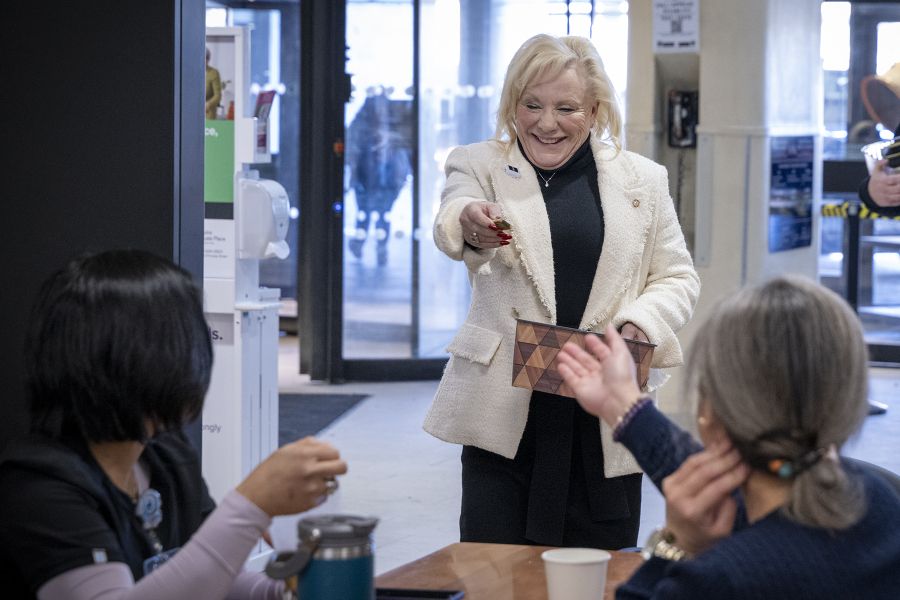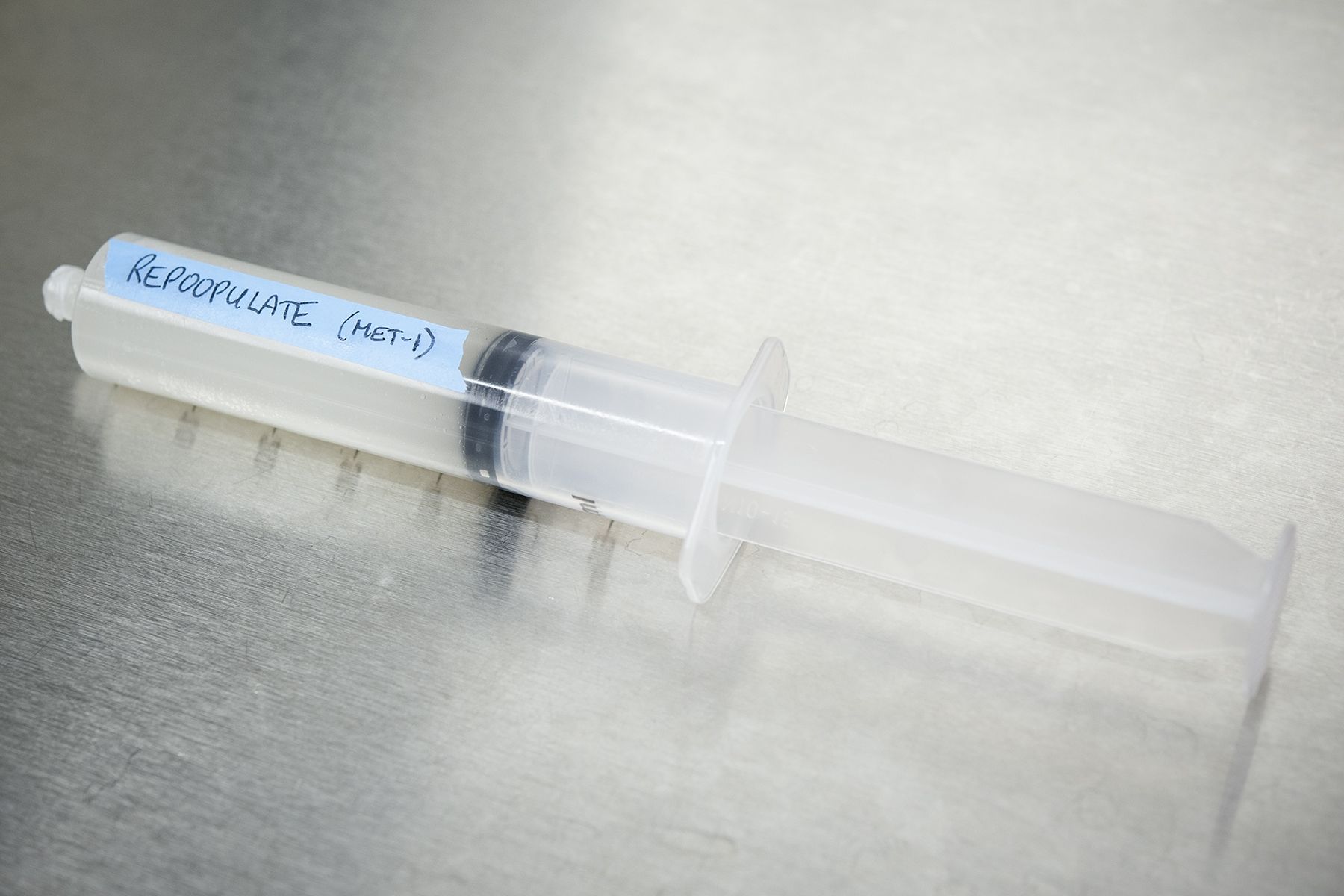
A synthetic stool treatment tested at Kingston General Hospital has been getting quite a bit of national and international attention, and with good reason. The proof-of-concept trial has been shown to cure those experiencing chronic C. difficile infections.
The results of the trial were just published in Microbiome, a peer-reviewed scientific journal and were part of a study co-authored by researchers at our Gastrointestinal Diseases Research Unit (GIDRU), Queen's University, Western University and Guelph University.
The researchers created synthetic stool, dubbed 'Re-POOPulate', to replace the need for human fecal matter used in stool transplants, a known treatment that has been successful in overcoming stubborn C. difficile. infections. C. diff. is a toxin-producing bacterium that can result in severe gastrointestinal problems, and even death.
"Because this stool is synthetic, there is less of an 'ick' factor associated with the transplant," says Dr. Elaine Petrof, an Infectious Diseases Specialist at GIDRU who ran the trial at KGH. "Re-POOPulate has the potential to become a more attractive treatment for those experiencing this debilitating infection."
The synthetic stool is made from purified intestinal bacterial cultures grown using the 'Robo-gut' machine. It's housed in a laboratory run by Guelph microbiologist and study co-author Emma Allen-Vercoe. The treatment works as a 'super probiotic' for the gut.
The synthetic stool treatment was tested in two patients with recurring C. diff. infections here at KGH. "Both patients experienced symptom relief within three days of treatment and tested negative for C. difficile six months later. They responded very well and seem to be completely cured," says Petrof.
"The potential this treatment has to help C. diff. sufferers is exciting," says Petrof. "This could become an alternate therapy for treating C. difficile. It has many benefits, including being safer for patients and medical staff as well as being easily and quickly reproduced based on a patient's needs."
Patient Cynthia Morgan-Robson was one of the patients who had the transplant, after failing to respond to several rounds of antibiotic treatment for C. diff. Within just a matter of weeks after treatment, her cognition and mobility had improved immensely, and she was getting back to normal, says Morgan-Robson's daughter Linda Harness.
"The difference was night and day. Before the treatment she was confused, combative, and needed a lift to move around. She was becoming completely debilitated. After the synthetic stool treatment, she experienced relief from diarrhea, can get around with a walker and is more clear-headed. Mum is really doing fantastic," says Harness.
Petrof collaborated on the study with Allen-Vercoe, Dr. Stephen Vanner, head of GIDRU, Gregory Gloor, a biochemistry professor at Western University and Guelph pathobiology professor Scott Weese. Dr. Lawrence Hookey, Medical Director of the Endoscopy Unit at KGH and HDH performed the procedure.
Although these results are very encouraging, 'Re-POOPulate' has not yet been approved for further use by Health Canada. Researchers are working with the agency to fulfill all the requirements deemed necessary for regulation of this novel therapeutic approach.
Gallery
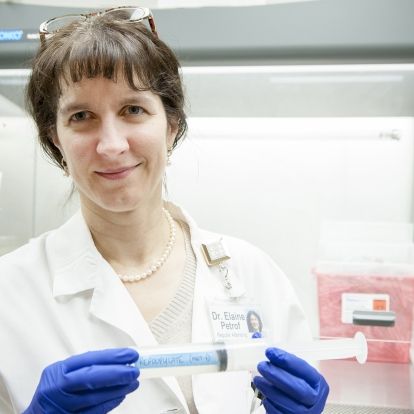
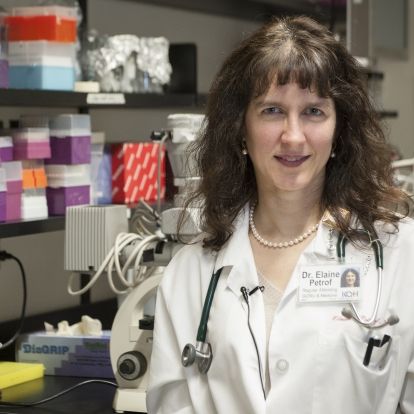
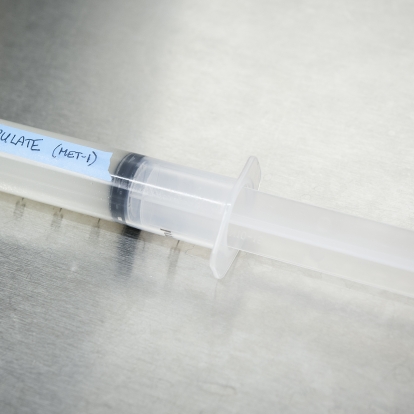
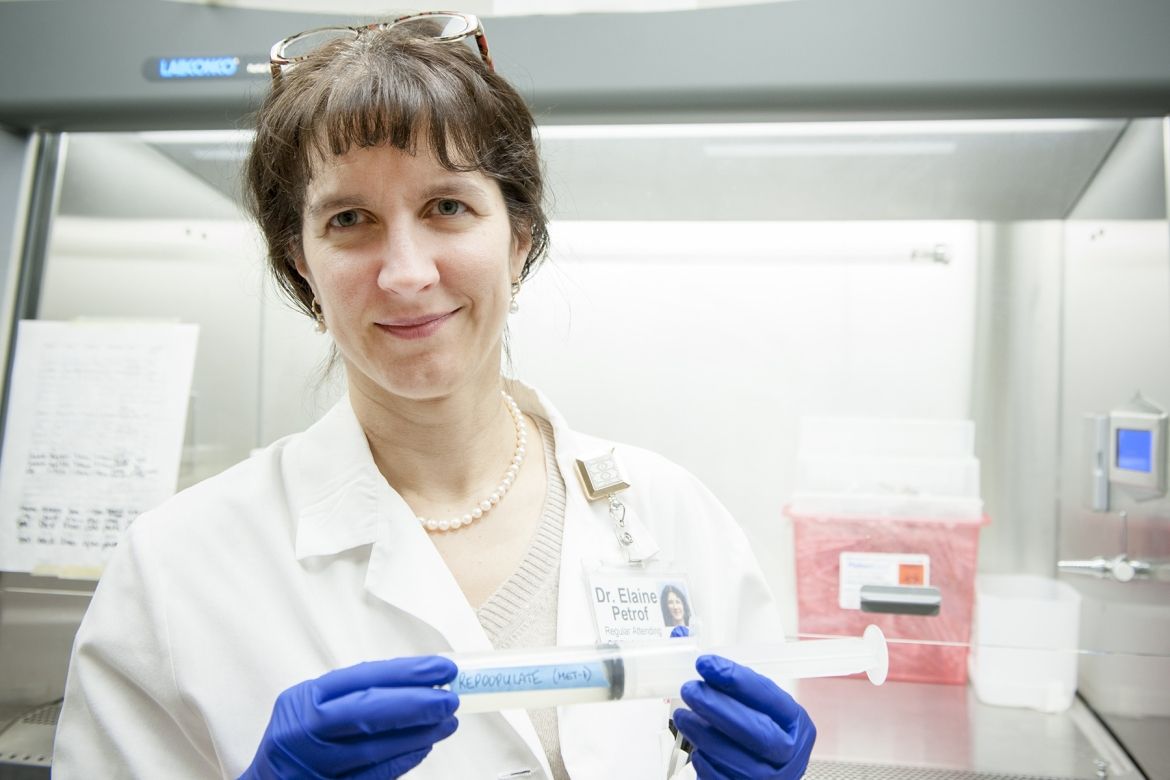
Dr. Elaine Petrof holds a sample of the mixture used as a treatment for C. diff. infections.
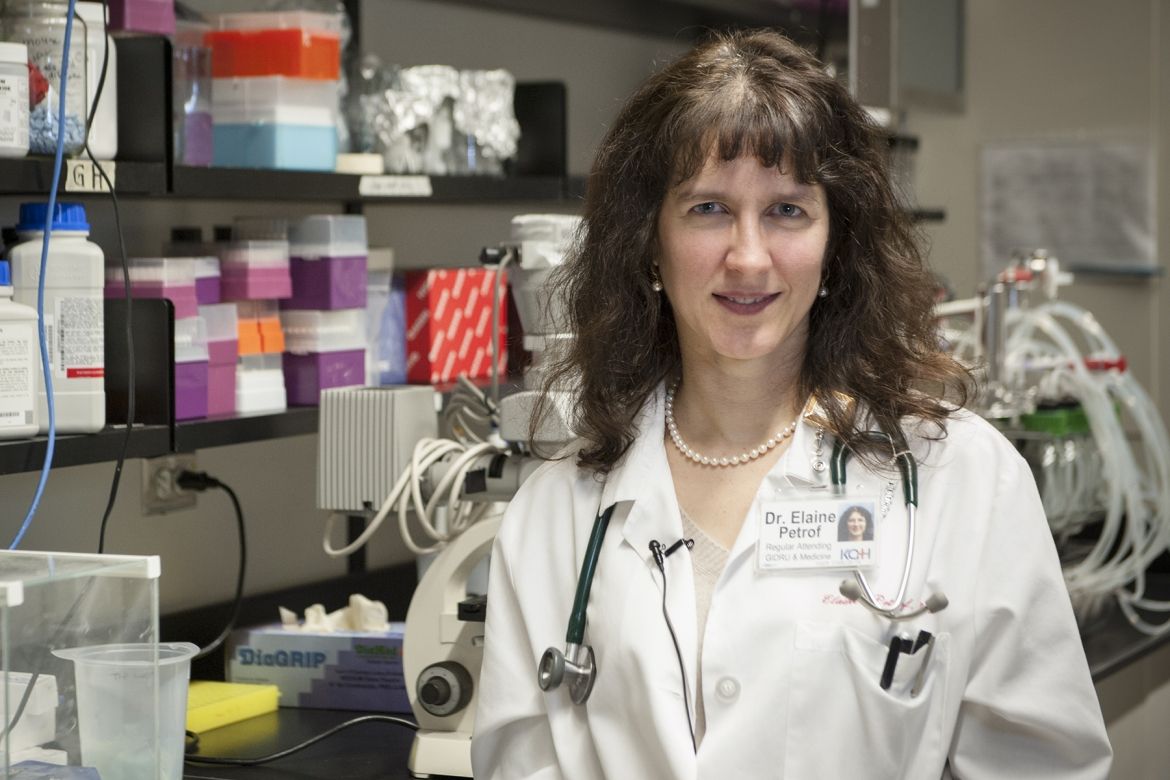
Dr. Elaine Petrof in her laboratory where the mixture used to cure C. diff. infections was created.
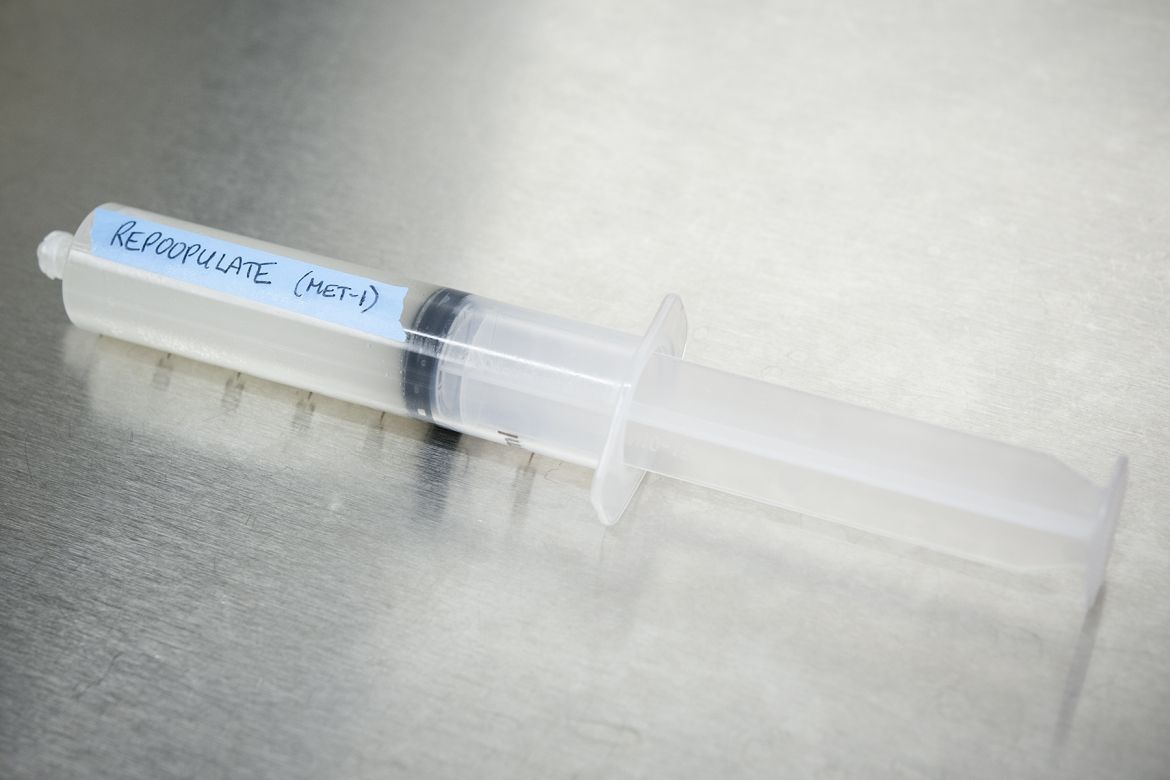
A sample of the mixture 'Re-POOPulate' used as a cure for C. diff. infections developed by Dr. Elaine Petrof at KGH.



